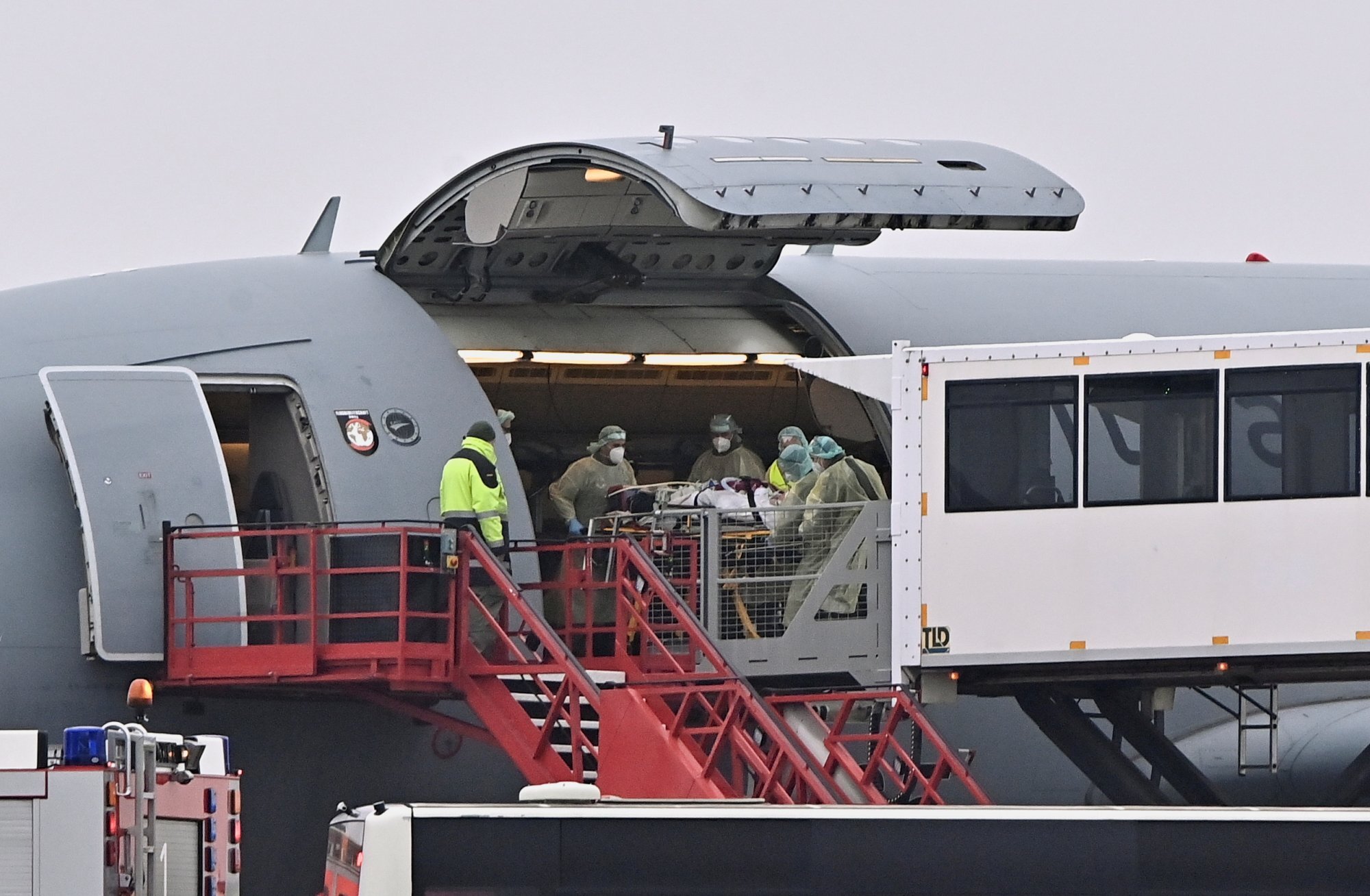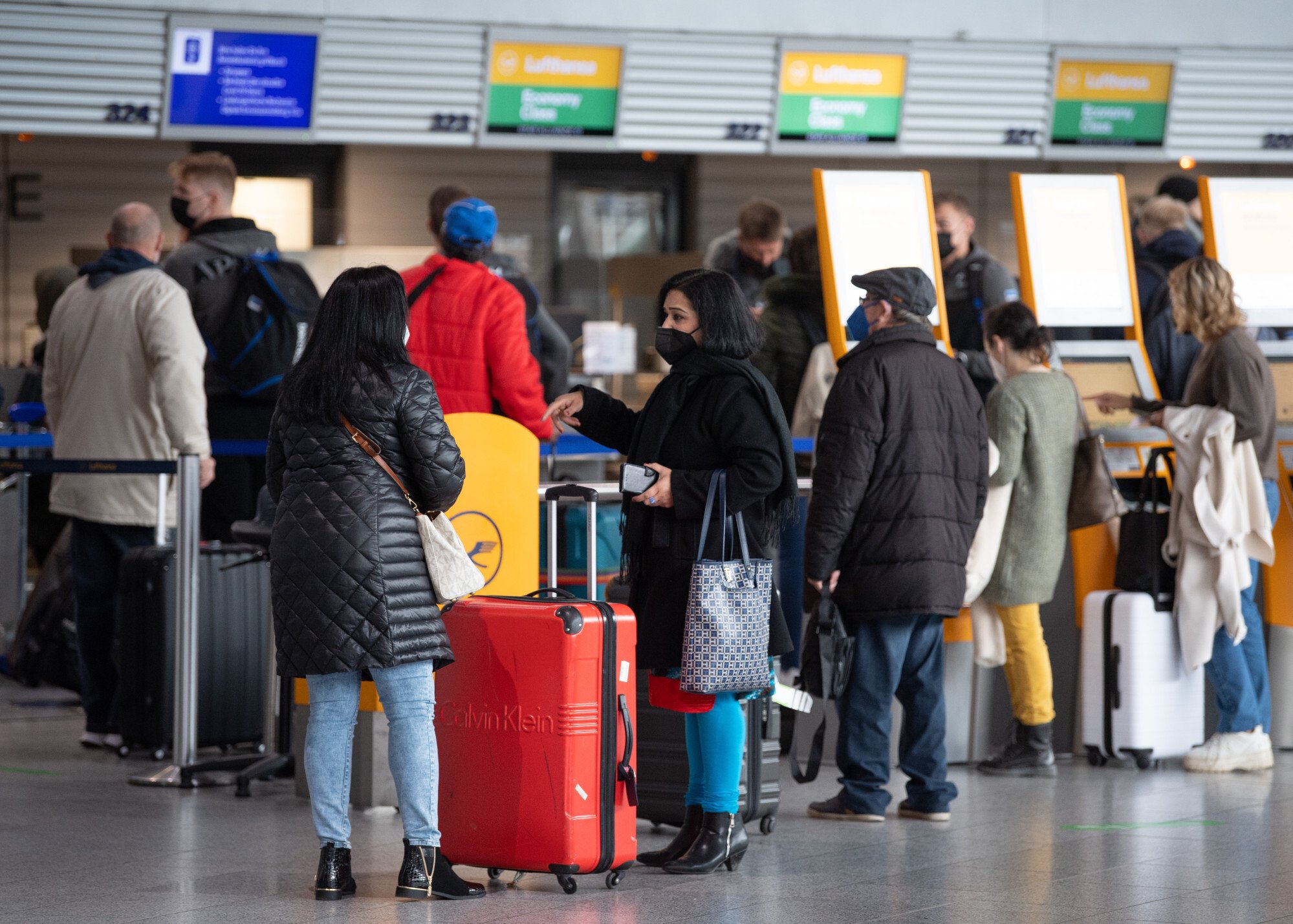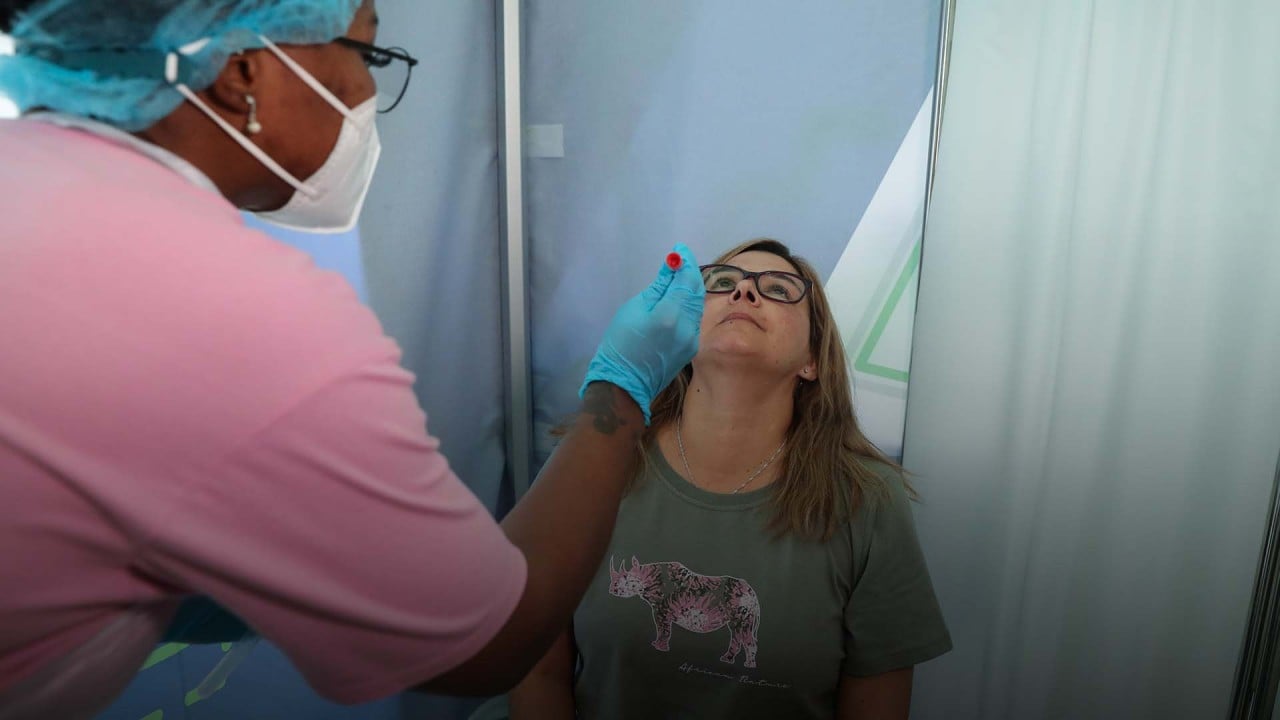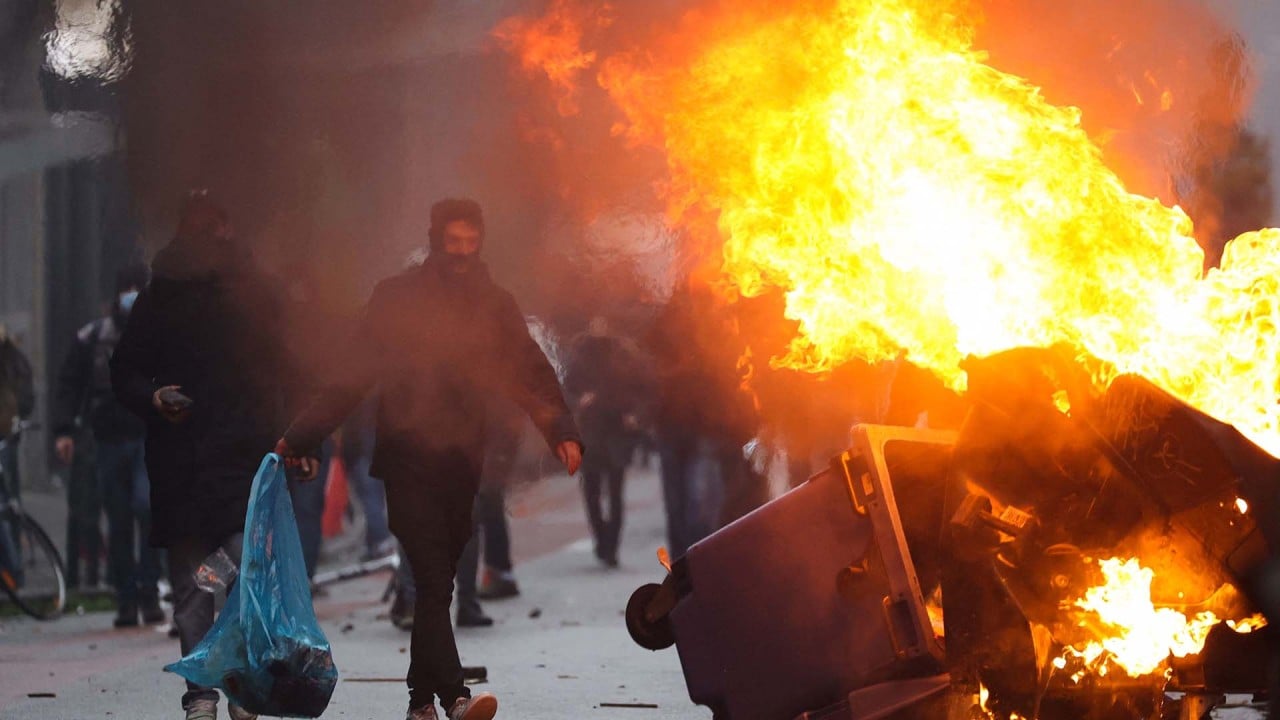
New Africa Covid-19 variant causes concern; countries begin imposing travel restrictions
- WHO holding special session on Friday to discuss new B.1.1.529 variant but says it could take weeks to understand implications
- The UN health body cautions against travel restrictions but many countries, including in Asia, have begun restricting arrivals from parts of Africa
It was a view apparently echoed by many nations, who have moved swiftly to try to prevent such an unwanted visitor from gaining access to their populations, while the UN health body held a special meeting to find out more but cautioned against travel restrictions.
“My own view is that really it is appropriate to be concerned about this,” Nabarro told the BBC. “I’ll tell you why. The virus looks like it will have greater capacity to evade the defences that we’ve all built up as a result of the vaccinations we’ve received since the beginning of this year.”

Singapore and Malaysia said on Friday they would restrict arrivals from seven African countries – South Africa, Botswana, Eswatini, Lesotho, Mozambique, Namibia, and Zimbabwe – with the curbs beginning this weekend.
Citizens and foreigners holding permanent resident status will be allowed to return but will have to undergo quarantine, health officials in both countries said. Malaysia also banned its citizens from visiting the seven affected nations.
Neither country has detected the new variant, but Singapore’s health ministry said it was seeking to “take the necessary precautions to reduce the risks” of it reaching the city state.

The Philippines suspended inbound international flights on Friday from South Africa and other countries with cases or the likelihood of cases of a new coronavirus variant, the presidential office said.
Flights and passengers coming from South Africa, Botswana, Namibia, Zimbabwe, Lesotho, Eswatini, and Mozambique were banned until December 15.
No need to be selfish in choice of coronavirus masks
Japan also tightened border controls for visitors from South Africa and five other African countries, the Jiji news service reported, while Taiwan said travellers from “high-risk” southern African countries will have to go into quarantine.
India issued an advisory to all states to rigorously test and screen international travellers from South Africa and other “at risk” countries amid concerns over a new coronavirus variant, after easing some of its travel restrictions earlier this month.
What do we know about the new coronavirus variant, and should Hong Kong be worried?
Israeli Prime Minister Naftali Bennett said Israel was “on the threshold of an emergency situation” after authorities detected the country’s first case of the new variant and barred travel to and from most African countries.
However, the World Health Organization cautioned against imposing travel restrictions due to the variant, saying it would take weeks to understand the implications of the newly-discovered strain.
It said its Technical Advisory Group on Virus Evolution (TAG-VE) was holding a meeting to discuss the variant first detected through surveillance in South Africa.
Hong Kong readies checkpoint drills, aircrew restrictions ahead of border reopening
As European nations including Austria, the Czech Republic, Germany, Italy, and the Netherlands joined Britain in announcing travel bans from South Africa, the WHO was “closely monitoring the recently reported variant B. 1.1.529,” spokesman Christian Lindmeier told a media briefing in Geneva on Friday.
“Early analysis shows that this variant has a large number of mutations that require and will undergo further study. It will take a few weeks for us to understand what impact this variant has.”
“Researchers are working to understand more about the mutations and what they potentially mean for how transmissible or virulent this variant is, and how they may impact on diagnostics, therapeutics and vaccines.”

He said the WHO “recommends that countries continue to apply a risk-based and scientific approach when implementing travel measures”.
“At this point, again, implementing travel measures is being cautioned against,” Lindmeier said.
The WHO will share further guidance for governments on action they can take, he said.
The advisory group could decide if the new variant is a “variant of concern”, the most worrying type, like the well-known delta variant, or a “variant of interest,” and whether to use a Greek letter to classify it.

The move to stop much air travel from southern Africa into Europe came as the 27-nation bloc sought to counter the spread of the new variant while already battling a massive spike in cases.
“The last thing we need is to bring in a new variant that will cause even more problems,” said German Health Minister Jens Spahn. Germany has seen record daily case numbers in recent days and passed the mark of 100,000 deaths from Covid-19 on Thursday.
Why vaccinated people are not as infectious as unjabbed if they get Covid
EU Commission President Ursula von der Leyen proposed, “in close coordination with the member states, to activate the emergency brake to stop air travel from the southern African region”.

In recent weeks Europe has been in the throes of surging cases and violent riots, wrestling with booster programmes and dramatic lockdowns to stem the tide as its death toll surpassed 1.5 million and it once again became the global epicentre of an unceasing pandemic.
Scientists are now racing to understand the impact of the new, heavily mutated strain, feared to be more infectious than Delta, which brought the world back to its knees a year after the virus first surfaced in China.
“This is the most significant variant we have encountered to date and urgent research is under way to learn more about its transmissibility, severity and vaccine-susceptibility,” Britain’s health agency chief Jennie Harries said.
South Africa detects new coronavirus variant, prompting UK travel ban
Ahead of Thursday’s announcement about the new variant by scientists in South Africa, countries across Europe were already accelerating booster campaigns, enforcing stricter curbs and targeting the unvaccinated as cases multiplied to record levels.
Authorities in the Netherlands were preparing for new riots ahead of an expected announcement on Friday by Prime Minister Mark Rutte to tighten a partial lockdown as it faces a critical hospital bed shortage with infections reaching record levels.
“We are keeping our eyes and ears open and we are prepared,” Rotterdam police spokesman Gijs van Nimwegen said.
Germany, the Czech Republic and Portugal – which has one of the world’s highest vaccination rates – all announced new measures in recent days to stem the tide of infections that has been worse than feared.
On Thursday, France made booster shots available to all adults and the EU’s medicines agency has approved jabs for five- to 11-year-olds.
Scientists and health officials in Britain and South Africa expressed alarm that the new variant could undo much of the hard-won gains against the virus over the summer.
Hope for Southeast Asian students after nearly 2 years shut out of China
Scientists said the new variant has at least 10 mutations, compared to two for Delta or three for Beta.
“The concern is that when you have so many mutations, it can have an impact on how the virus behaves,” Maria Van Kerkhove, the WHO’s technical lead on Covid-19, said.

.png?itok=arIb17P0)


